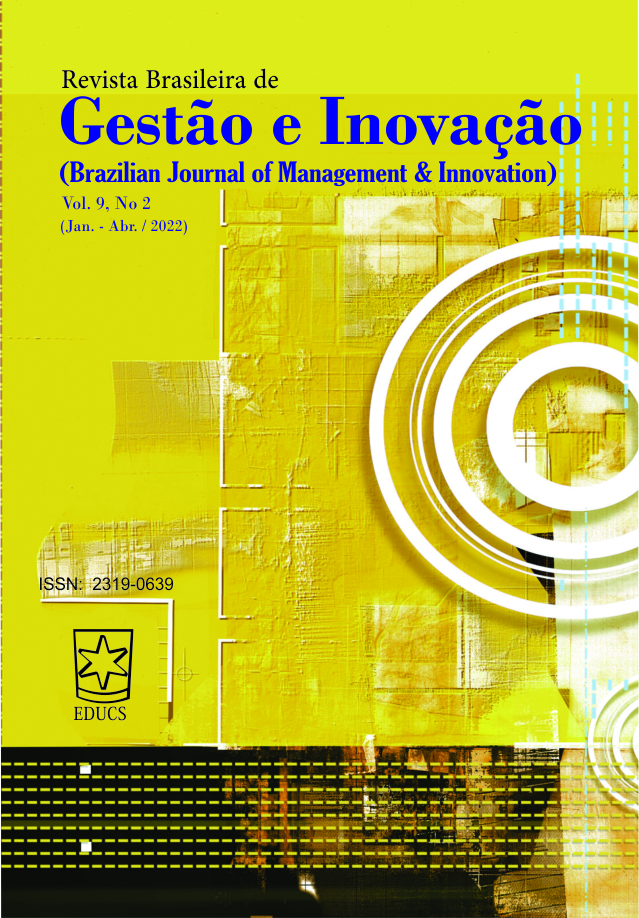THE IMPACT OF INNOVATION PERCEIVED ON CUSTOMER LOYALTY: A STUDY IN BEAUTY SALONS
DOI:
https://doi.org/10.18226/23190639.v9n2.07Keywords:
Inovação percebida, Fidelidade, Serviço, Salão de beleza.Abstract
The changes in the business world are constant, and this reality is due to globalization. In view of this, an evident factor in this new scenario is the issue of innovation, which is a complex process, which can be characterized as a fundamental point for the question of customer loyalty. The purpose of the paper is to identify the way in which the innovation perceived in a beauty salon service influences customer loyalty to it, using a model of structural equations. The research, which is quantitative and descriptive in nature, was carried out through the application of questionnaires with 285 consumers of the beauty salon service residing in the State of Pernambuco. Data analysis was performed using the statistical software JASP, in which a model of structural equations was created in order to verify which factors most influence the innovation perceived by consumers in beauty salons and which is the relationship between perceived innovation and customer loyalty. The results showed that the variables that positively affect an innovative perception of the service are: administration, service core, external infrastructure and responsiveness. A significant relationship was also found between perception of innovation and loyalty. Thus, this article confirms the hypothesis that it is essential that managers of beauty salon companies improve the practices of their services, with a view to innovation in order to obtain customer loyalty.
Downloads
Published
How to Cite
Issue
Section
License
Copyright (c) 2021 Brazilian Journal of Management & Innovation

This work is licensed under a Creative Commons Attribution 4.0 International License.
The author must guarantee that:
- there is full consensus among all the coauthors in approving the final version of the document and its submission for publication.
- the work is original, and when the work and/or words from other people were used, they were properly acknowledged.
Plagiarism in all of its forms constitutes an unethical publication behavior and is unacceptable. Revista Brasileira de Gestão e Inovação has the right to use software or any other method of plagiarism detection.
All manuscripts submitted to RBGI - Revista Brasileira de Gestão e Inovação go through plagiarism and self-plagiarism identification. Plagiarism identified during the evaluation process will result in the filing of the submission. In case plagiarism is identified in a manuscript published in the journal, the Editor-in-Chief will conduct a preliminary investigation and, if necessary, will make a retraction.
This journal, following the recommendations of the Open Source movement, provides full open access to its content. By doing this, the authors keep all of their rights allowing Revista Brasileira de Gestão e Inovação to publish and make its articles available to the whole community.
RBGI - Revista Brasileira de Gestão e Inovação content is licensed under a Creative Commons Attribution 4.0 International License.
Any user has the right to:
- Share - copy, download, print or redistribute the material in any medium or format, linking to RBGI site.
- Adapt - remix, transform and build upon the material for any purpose, even commercially.
According to the following terms:
- Attribution - You must give appropriate credit, provide a link to the license, and indicate if changes were made. You may do so in any reasonable manner, but not in any way that suggests the licensor endorses you or your use.
- No additional restrictions - You may not apply legal terms or technological measures that legally restrict others from doing anything that the license permits.
#RBGI







